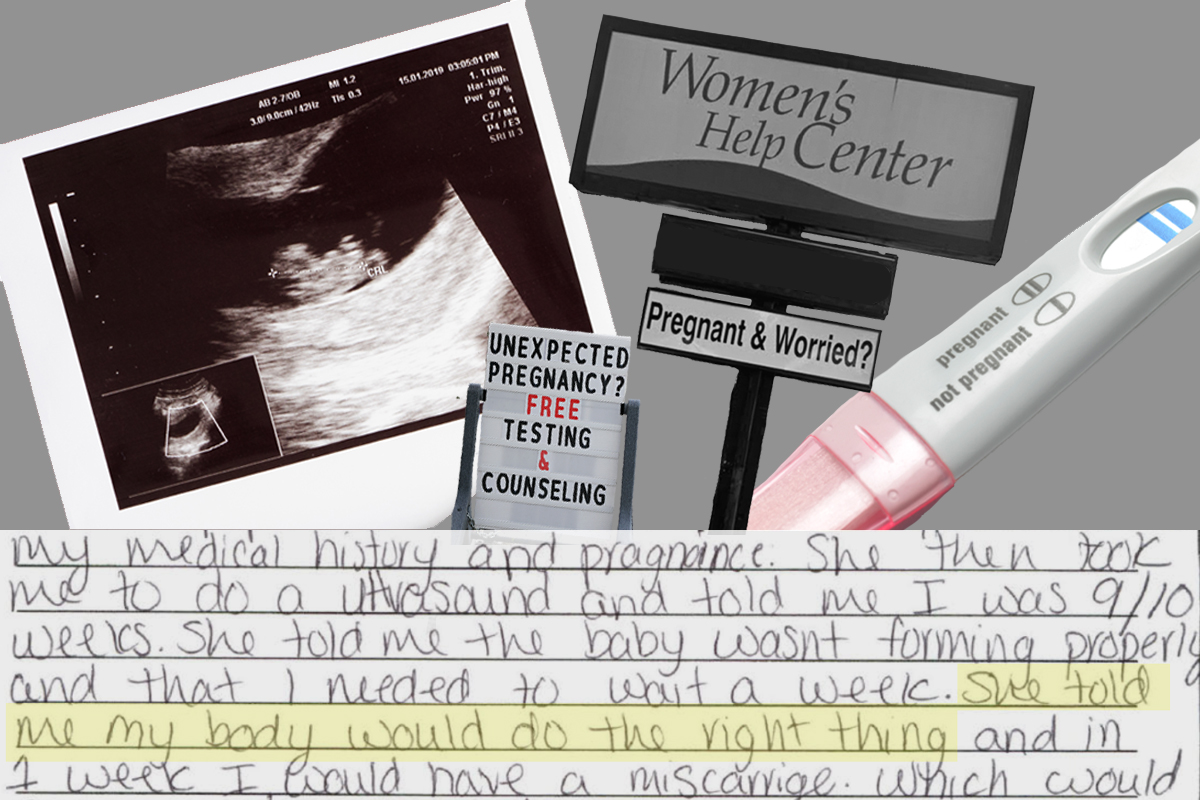Abortion is not considered murder legally because it is the termination of a pregnancy before the fetus can live independently. Ethically, many argue that a fetus is not recognized as a person with rights equivalent to the mother’s until it is viable.
Understanding the highly nuanced and contentious debate surrounding abortion requires recognizing the legal and ethical frameworks that define it. Abortion laws often hinge on the concept of fetal viability—the point at which a fetus could potentially survive outside the womb—which varies from country to country and even among different states.
Certain philosophical viewpoints maintain that personhood and the rights associated with it only begin after birth, not conception. The morality of abortion is complex, with discussions often considering the rights of the pregnant individual, public health implications, and socio-economic factors. As such, abortion is an intensely personal decision, and the characterization of it as murder remains a contested issue, deeply intertwined with individual beliefs, scientific interpretations, and legal structures.

Credit: www.cnn.com
The Moral Complexity Of Abortion
The topic of abortion wraps itself in layers of moral complexity, posing questions that intersect with ethical, legal, and philosophical considerations. Central to this debate is the often contentious assertion made by some that abortion equates to murder. Scrutinizing this claim requires a thoughtful examination of moral and legal precepts, as well as the myriad ethical considerations that individuals face.
Contrasting Moral And Legal Definitions
To understand the term ‘murder,’ one must consider both moral and legal lenses. Morally, murder is typically seen as the unjust killing of a human being. Legally, it is a crime involving the deliberate taking of a life. Abortion, while ending a potential life, falls under a different category given the consideration of women’s rights and the complexities of fetal development.
- Morally subjective: Opinions on when life begins vary widely.
- Legally distinct: Most laws differentiate between abortion and homicide.
- Fetal viability: Legal definitions often hinge on the fetus’s ability to live outside the womb.
Navigating The Gray Areas: Ethical Considerations
Abortion isn’t a black-and-white issue; it resides in a gray area ripe with ethical dilemmas. Individual circumstances, such as health risks to the mother or severe fetal abnormalities, factor into the moral equation. Personal autonomy and the rights of the pregnant individual also play a critical role. Society must consider these nuances when debating abortion and its moral standing.
| Consideration | Impact on Ethical Perspective |
|---|---|
| Women’s autonomy | Challenges the concept of abortion as murder based on individual rights. |
| Health of mother/fetus | Adds complexity to the definition of abortion as merely ending a life. |
| Societal context | Brings in factors like socioeconomic status and access to care. |
Evaluating abortion involves considering the rights and wellbeing of all involved. In understanding the moral complexity of abortion, one must navigate these considerations with compassion and depth.
Biological Basis For Abortion Rights
Debates around abortion often delve into ethics, emotions, and law. A crucial aspect that shapes these discussions is the biological basis for abortion rights. Science and medicine offer insights into what constitutes life and personhood. They also explain fetal development stages. These factors contribute to understanding why many argue abortion is not murder.
Defining Life And Personhood
Defining life and personhood is complex. It blends science with philosophy. Scientists agree life starts at conception. But, they often argue personhood begins much later. Personhood includes the ability to have experiences, emotions, and interests. These characteristics appear well after a fetus is formed.
Stages Of Fetal Development And Viability
Understanding when a fetus can live outside the womb is important. This is called viability. Earlier in pregnancy, a fetus cannot survive on its own. It is not yet viable. This period sees rapid cell division and organ formation. But, it lacks independent function. At around 24 weeks, the chance for a fetus to survive, with medical help, increases. This stage marks an important threshold in the discussion on abortion rights.
| Weeks of Gestation | Development Milestone | Viability Status |
|---|---|---|
| 0-12 | Organ systems begin to form | Not viable |
| 13-24 | Rapid development, some organ function | Limited viability with intensive care |
| 25+ | Improved survival chances | Viably improves weekly |
Societal Implications Of Abortion Access
The debate surrounding abortion often ignites emotions and opinions. Yet, understanding abortion’s societal implications extends beyond personal beliefs. Access to abortion plays a pivotal role in shaping modern society. It influences women’s health, autonomy, and family planning. Let’s explore how this access can drive positive societal change.
Impact On Women’s Health And Autonomy
Abortion access directly affects women’s health and autonomy. It ensures they can make decisions about their own bodies. This freedom is not just about choice, but also about safety and health.
- Safety: Legal abortions are safe. Illegal ones can put lives at risk.
- Health: Women can avoid health risks from unsafe pregnancies.
- Control: They have control over their bodies and futures.
The Role Of Abortion In Family Planning
Family planning is essential for a stable society. Abortion is sometimes part of this planning. It allows families to grow when they are ready.
- It helps in managing family size.
- It contributes to better resource allocation.
- It supports parents in providing better for their children.
Abortion can be a responsible choice. It helps create strong family foundations. This benefits society as a whole.

Credit: www.christianitytoday.com
Differentiating Murder From Medical Autonomy
Understanding the nuances between murder and medical autonomy is critical. The conversations around abortion are often charged with emotion and moral complexities. This section explores why abortion does not equate to murder, emphasizing the respect for individual choice and autonomy in medical decisions.
The Legality Of Choice
Legal frameworks provide the backbone for societal norms and personal freedoms. In many countries, abortion is legal, reflecting a recognition of the rights of individuals to make decisions about their own bodies. Unlike murder, which is a legal transgression, the choice to have an abortion is protected under law, affirming it as a matter of personal healthcare and not a criminal act.
Medical Procedures As Personal Decisions
Every medical procedure is a choice made between a patient and their healthcare provider. Abortion, like other medical decisions, is based on personal circumstances, health considerations, and informed consent. It is not a decision made lightly, but with serious contemplation and regard for personal wellbeing.
- Abortion is a private and personal choice.
- Each individual assesses their own health and future.
- Legal, safe abortions are a form of healthcare.
Compassion And Understanding In The Abortion Debate
The abortion debate often stirs intense emotions. Key to navigating this complex issue is compassion and understanding. By empathizing with the experiences of others, we can foster a more humane conversation around what is often seen as a black-and-white topic. Such an approach seeks to appreciate the gray areas and the very real human stories behind each decision.
Empathy For Diverse Circumstances
Understanding that each individual faces unique challenges is critical. Life presents us with intricate situations where the answer isn’t simple. By recognizing that reality differs remarkably for each person, the discourse becomes one of empathy rather than judgement. Circumstances such as:
- Health risks to the mother
- Economic instability
- Personal readiness for parenthood
- In cases of rape or incest
call for nuanced understanding, rather than blanket declarations.
The Importance Of Supportive Discourse
In any debate, the words we choose can either build bridges or create divisions. A supportive conversation space allows different voices to be heard. It also encourages sharing experiences and insights, leading to collective wisdom. Key ingredients for a supportive discourse include:
- Active listening to understand, not to respond.
- Respect for diverse opinions and stories.
- Offering resources and assistance rather than judgment.
This way, we construct a community that cares, nurtures, and respects individual choices.

Credit: coloradonewsline.com
Frequently Asked Questions For Why Abortion Isn’t Murder
Is Abortion Legally Considered Murder?
No, abortion is not legally considered murder. Most legal systems define murder as the unlawful killing of another human with intent. Abortion is a legal medical procedure in many countries, and does not fall under this definition.
At What Stage Does Life Begin According To Science?
Science does not provide a definitive answer as to when life begins. Different stages, such as conception, viability, or birth, are considered crucial by different scientific and philosophical perspectives. The beginning of life is a complex and debated subject.
How Does Abortion Law Vary Internationally?
Abortion laws vary widely internationally. Some countries offer full access to elective abortions, while others heavily restrict or outright ban the procedure. Legal standings depend on various factors, ranging from gestational limits to the mother’s health.
Does Having An Abortion Impact Future Fertility?
Having an abortion generally does not impact future fertility. Most women can have normal pregnancies after an abortion. However, as with any medical procedure, there can be rare complications that might affect fertility, but these are not common.
Conclusion
Navigating the complex terrain of moral dilemmas can be daunting. Yet, the discourse on abortion demands nuance. Recognizing its legal and ethical distinctions from murder is crucial. This piece aimed to clarify these differences, fostering informed debate. Let respect guide our dialogues as we continue to explore this sensitive topic.



